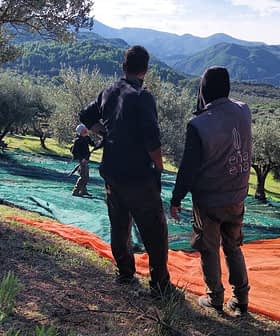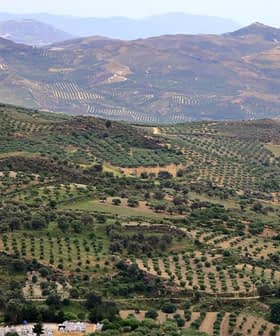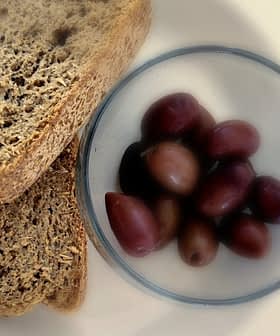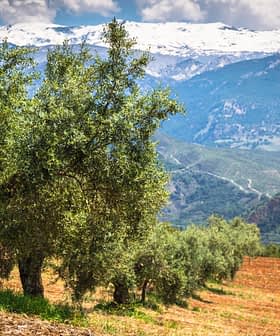Harvest Winds Down in Greece with Mixed Results
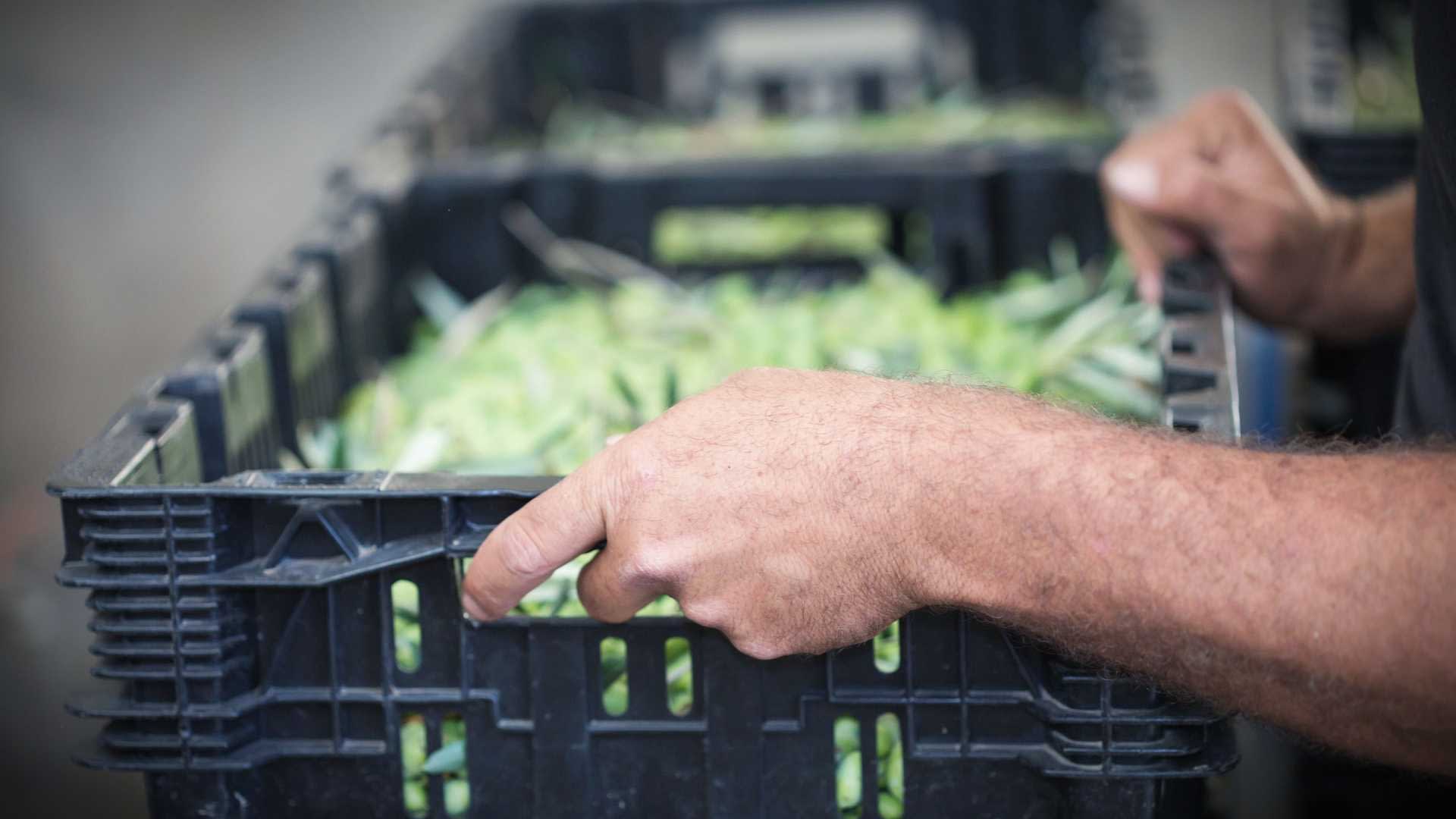
The 2020 olive oil harvest in Greece is projected to have a mediocre output of around 265,000 tons, with some regions like Laconia and Crete experiencing lower yields due to weather conditions. The pandemic has also impacted the harvest season, with producers facing challenges such as lack of manpower and disruptions in production due to lockdowns, while prices for olive oil vary across different regions of the country.
As the 2020 harvest draws to an end in Greece, data released by the European Commission reveal a mediocre season of olive oil production with a projected output of around 265,000 tons.
Other estimates, though, predict a lower total of 230,000 to 240,000 tons.
Many producers followed the advice of experts and harvested too soon fearing the fruit fly, without relying on their experience.
The lackluster season is reflected in several olive oil making territories of the country, with growers and producers expecting less than their usual output.
“This season, the whole region of Laconia will give almost half of its usual 30,000 tons of olive oil, mainly because of the heatwave of last spring,” Giorgos Korinnis, an agriculturist and producer from Laconia in the Peloponnese, told Olive Oil Times.
Korinnis said the warm weather was enough to overturn the natural development of the olive fruits to maturity.
“It may seem like a small period, but the four consecutive days in May with unusually high temperatures soaring above 35°C (95°F) took a heavy toll on the olive trees in the region,” he said. “The olive fruits ended up being wrinkled with not enough juice inside at the time of processing, giving less olive oil than they should.”
See Also:Unusual Spring Heat Brings Early Problems for Greek FarmsKorinnis also described the lack of manpower as a significant problem which made the harvest more difficult to complete.
“Foreign land laborers were difficult to come by due to the travel restrictions,” he said. “We had to be resourceful to harvest our olives by utilizing all means available. I even know a producer who bought an automatic harvesting machine for €60,000 to overcome the scarcity of workers, but of course, not everybody can do the same.”
Further south in Crete, mill owner and exporter Manos Rodanakis of Nutricreta from Sitia in the eastern part of the island also expects a mid-range harvest this season.
“The whole island of Crete fares 60 percent of its usual production and Sitia is expected to make around 7,000 tons of olive oil, compared to 14,000 tons in highly productive years,” Rodanakis reported.
“All the olive oil of Sitia is extra virgin of excellent quality bearing a PDO label,” he added. “We export our extra virgin olive oil to France and Eastern Europe, mostly Russia, but unfortunately prices at origin are currently below €3 per kilo now. We have seen, however, that markets of Eastern Europe ask for more olive oil and they are likely to surpass traditional markets.”
Other parts of the island are not seeing the high quality reported in Sitia. In some areas, early-harvested olives gave oil of very low acidity but with other characteristics diminished, as other Cretan producers pointed out.
“The olive oil produced in October did not have the aromas or the performance of the November olive oil,” said Vaggelis Protogerakis, head of the producers association of Heraklion.
“Unfortunately we did not do as expected because October and November had different weather conditions compared to the previous season,” he added. The [olive oil] qualities of October were not so good. Importers did not like the olive oils they tasted. And, for the most part, not even the [chemical] analyses revealed a quality product.”
Priamos Ieronymakis, the head of the wine and olive oil producers association of Crete, argued that early harvest is not a panacea and producers should decide when to pick their olives.
See Also:The Best Olive Oils from Greece“Agourelio (early-harvested olive oil) can be a great product, provided there is a good planning and that we put forward the quantities the market wants,” he said.
“If a fruit is ready [for harvest] the producer knows and can judge after years of experience,” he added. “This season, many producers followed the advice of experts and harvested too soon fearing the fruit fly, without relying on their experience and checking their olives.”
In the weathered island of Lesvos in the Aegean, which has suffered consecutive problematic harvest seasons mainly due to adverse weather fluctuations, a local mill owner and exporter Michalis Tzortzis is continuing to process olives amid snowfall.
“It is snowing these days in Lesvos, and we have not yet wrapped up operations for the season,” Tzortzis told Olive Oil Times.
The snow was the least of his problems, Tzortzis noted, as the pandemic has had a significant effect on the current season.
“We are under a strict lockdown here and we have to stop working at 6 p.m. and return tomorrow morning to continue, something that disrupts our production” he said. “The weather was very dry this year and It is an average season in terms of quantity. The quality of the olive oil, on the other hand, is really great with more extra virgin produced than previous years.”
Tzortzis also bemoaned what he called a lack of continuity in the local farming sector — a long-term problem he considers to be a threat to the olive oil industry of the island.
“Young people here do not become farmers, not because they are afraid of hard work, but because the income is low and not secured,” he said. “This creates a more and more aging farming population on the island and could ultimately put in peril our agricultural production including olive oil.”
In terms of prices, Lesvos appears to be the exception with extra virgin selling higher compared to other territories of the country, as Tzortzis and other producers said.
“Prices at origin are currently above €3 per kilo on the island, which is good for producers but not so good for exporters who cannot compete against cheaper olive oils in international markets,” Tzortzis said.
“We export to 14 countries in Europe, however, we see that the financial situation of buyers is not what it used to be. Consumers have become cautious and selective and they think twice before buying.”
Another olive oil professional from Lesvos, bottler Haralambos Papadellis, said that the prices of olive oil on the island are higher than elsewhere in Greece.
“Extra virgin is being bought at ‘Spanish’ prices of €3 per kilo, and in some cases for even more,“Papadellis said. “These prices are much higher than the prevailing prices in the Greek market. In general, prices are better compared to last year in all the virgin olive oils and lampante oil.”
In other territories of the country, there were no significant problems related to the fruit fly, and the olive oil is of high quality. But here was reduced volume, like in the Ilia region where 25,000 tons are expected compared to 30,000 tons in good years.
Estimates for the neighboring Messinia, in contrast, predict a strong yield similar to quantities of prosperous seasons of around 50,000 tons of olive oil.
What remains for Greek producers and exporters is the continuing impact of the pandemic and the long-lasting closures that affect the whole sector.
“If it were not for the pandemic and the various lockdowns and business closures it has caused, demand and prices for Greek olive oil would have been much better,” Manos Rodanakis of Nutricreta said.


